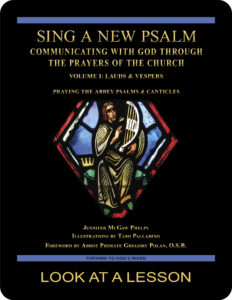daily needs
 The “Our Father,” also known as the Lord’s Prayer, is found in the Gospel According to Matthew 7:9–15 (NABRE). What’s especially interesting about the Greek version of this prayer is that it contains in both Matthew’s and Luke’s versions a hapax legomenon, a word that is used only once. The word in the “Our Father” typically translated as daily in “give us this day our daily needs” is not used anywhere else in all of classical or biblical Greek literature.
The “Our Father,” also known as the Lord’s Prayer, is found in the Gospel According to Matthew 7:9–15 (NABRE). What’s especially interesting about the Greek version of this prayer is that it contains in both Matthew’s and Luke’s versions a hapax legomenon, a word that is used only once. The word in the “Our Father” typically translated as daily in “give us this day our daily needs” is not used anywhere else in all of classical or biblical Greek literature.
The word ἐπιούσιος (epiousios) likely was coined specifically for the context of the “Our Father.” It has two roots, the prefix epi meaning “to” or “toward” and ousios from the Greek word for “to be.” Because of these roots, Jerome, Origen, and many of the early Church Fathers saw this word as meaning “necessary for being or existence.”
How do you think this insight changes the meaning of the “Our Father”?
related topics: prayer; prayer as barter
you also may like Volume I of our Psalms study
 Sing a New Psalm: Communicating with God Through the Prayers of the Church—Volume I: Lauds & Vespers provides an in-depth look at Psalms prayed in morning and evening liturgies. (Volume II, set for publication in 2024, looks at Vigils, Day Prayer & Compline.) The study is based on The Abbey Psalms and Canticles, a translation prepared by the Benedictine monks of Conception Abbey and published by the United States Conference of Catholic Bishops (USCCB). Click on the book’s cover to view a sample lesson.
Sing a New Psalm: Communicating with God Through the Prayers of the Church—Volume I: Lauds & Vespers provides an in-depth look at Psalms prayed in morning and evening liturgies. (Volume II, set for publication in 2024, looks at Vigils, Day Prayer & Compline.) The study is based on The Abbey Psalms and Canticles, a translation prepared by the Benedictine monks of Conception Abbey and published by the United States Conference of Catholic Bishops (USCCB). Click on the book’s cover to view a sample lesson.
 Click on the picture of the statue of Moses with horns (above) to learn more about Lost in Translation. A new entry is archived each Monday. Contact us to receive Lost in Translation by email every week. You may use any of the contact links on our website to ask Matthew a question.
Click on the picture of the statue of Moses with horns (above) to learn more about Lost in Translation. A new entry is archived each Monday. Contact us to receive Lost in Translation by email every week. You may use any of the contact links on our website to ask Matthew a question.
